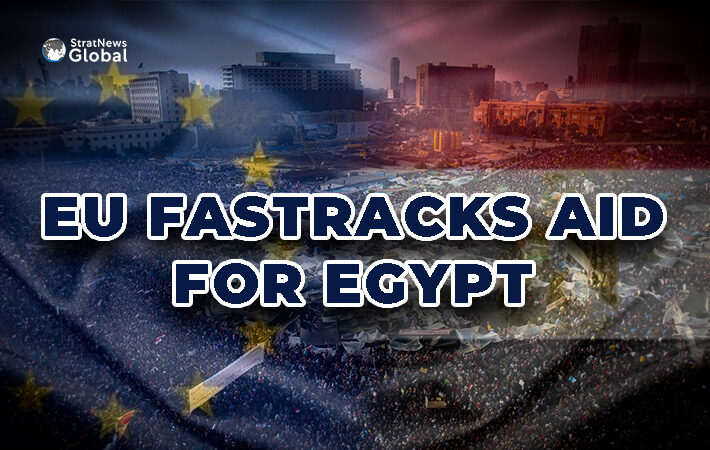
BRUSSELS: Egypt is to receive more than $1 billion from the European Union, part of an $8 billion package, that is being fast-tracked ahead of elections to the EU Parliament in June. Delivery of the money would otherwise have been slow given various safeguards that come into play. But EU leaders decided to step up the pace at a time when Cairo’s economic and financial situation is seen as serious and deteriorating.
AP reports that Egypt has for years relied on cash handouts, often from wealthy Gulf Arab states, as concerns mount that economic pressure and regional conflicts could drive more migrants from the region to Europe’s shores.
The EU package includes three years worth of grants and favorable loans for the Arab world’s most populous country. Most of the funds — $5.4 billion — are known as macro-financial assistance, or MFA, and would be paid directly to Egypt’s Central Bank.
With those polls in mind, European Commission President Ursula von der Leyen announced plans for “an urgent MFA operation”, noting in a letter to EU Parliament President Roberta Metsola the country’s “rapidly deteriorating economic and fiscal situation.”
The letter, seen by The Associated Press, preceded the announcement of the deal with Egypt.
Von der Leyen blamed “a very large exposure to the economic effects of Russia ‘s full-scale war of aggression on Ukraine, the wars in Gaza and Sudan, and the Houthi attacks in the Red Sea,” and said it was “imperative to make sure that a first significant contribution” would get to Egypt by the end of 2024.
To do so, the commission would employ a seldom-used part of the EU treaties, Article 213, which stipulates that the 27 member countries must endorse the funds — but not the parliament, the bloc’s only democratically elected institution.
Not even when COVID-19 spread in 2020 and the EU bailed out governments from the Balkans to the Middle East, was this path taken. Nor is it used to keep Ukraine’s war-shattered economy afloat, although Kyiv did benefit from it a decade ago, when Russia annexed Crimea and hiked natural gas prices.
Apart from removing the need for parliamentary oversight, the urgent funding procedure also side-steps a requirement for an impact assessment on the effects of the assistance.
Source: AP







